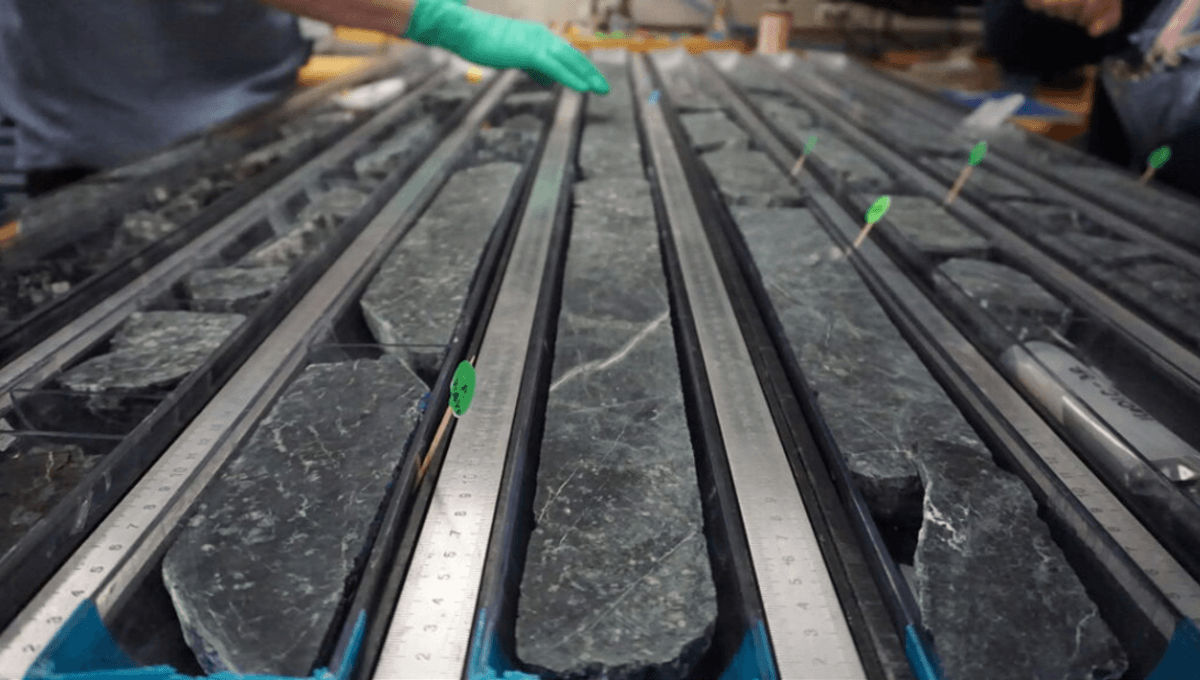
A team drilling down into the oceanic crust has reached impressive depths, collecting incredible samples of mantle rock from 1,000 meters (3,280 feet) below the sea floor.
The Earth’s crust, on land, is variable. On average it is about 30 kilometers (19 miles) thick, though under mountain ranges it can reach as much as 100 kilometers (62 miles). Beneath the oceans, it doesn’t vary as much and is on average 6-7 kilometers (3.7-4.3 miles) thick.
Attempts have been made to dig into the crust on the Earth and underneath the ocean with varying success. On land, the record for the deepest hole on Earth goes to the Kola Superdeep Borehole, on the Kola Peninsula in northwestern Russia. The project, which spanned from May 24, 1970, to just after the collapse of the Soviet Union, saw the deepest branch of the hole reach 12,261 meters (40,226 feet) below sea level.
Digging under the sea, due to the relative thickness of the crust, is a better way to reach down to mantle rock that hasn’t been weathered by exposure to the surface. However, it comes with its own set of challenges including keeping the ship and drill steady in position during the dig.
“Drilling at sea is as nightmarishly complicated at it sounds, with all the problems of continental deep drilling plus a few added extras,” the European Geosciences Union writes in a blog post.
An American team in the 1960s reached 183 meters (600 feet) beneath the seafloor, going through 13 meters (43 feet) of basalt in the uppermost layer of oceanic crust before the project was canceled due to mismanagement and financial troubles. In 1993, a team dug 200.8 meters (659 feet), setting the record for a hole drilled into serpentinite peridotite. The new team, which conducted the dig on the JOIDES Resolution ship, is approaching 1,000 meters (3,280 feet) below the sea floor.
The team are digging near the Lost City Hydrothermal Field, along the Atlantis Massif, an underwater mountain range.
“On Earth, mantle rock is normally extremely difficult to access. The Atlantis Massif offers a rare advantage to gain access to it, as it is comprised of mantle rocks that have been brought up closer to the surface through the process of ultra-slow seafloor spreading,” the team explains in a press release.
“This enables the JOIDES Resolution the unique opportunity to drill and bring up this mantle rock which has not been altered by weathering on the surface, allowing scientists to provide us with new insights into the composition and structure of the mantle, as well as processes that take place within it.”
At these depths, Vincent Salters, a geochemist at Florida State University, told Science Magazine, the team appears to have already sampled mantle rock which has never melted into magma, which would then cool to form igneous rocks found in the Earth’s crust. However, Donna Blackman, a geophysicist at the University of California, Santa Cruz also told Science Magazine that the mantle rocks brought up show signs of seawater influence, and so should really be termed deep crust rather than mantle. As the team digs further, they will hopefully get deeper down and away from the ocean’s effects.
“The magnitude of the history occurring has most certainly not been lost on our science party,” the team added in the press release, “many of whom are seasoned field researchers and believe this will be incredibly important data for many generations of scientists to come.”
Source Link: Geologists Drilling Deep-Sea Hole Retrieve Deepest Earth Mantle Rocks Ever